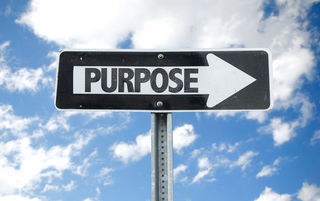Stress
Try a Radically Different Solution for Stress This Season
Attempting to control your emotions is part of the problem, not the answer.
Posted December 14, 2019 Reviewed by Davia Sills

As any therapist will tell you, this time of year is usually the hardest for our clients. Shorter and colder days, family problems that surface during holidays, and reckoning with yet another year passing all conspire to raise the level of psychological distress. Add to that the current contentious political climate—with 56 percent of Americans citing the 2020 presidential election as a stressor more than a year before the election—and you have the makings of a stress epidemic.
The emotions showing up in my psychotherapy sessions include frustration, anger, fear, grief, and sadness. The stories vary, but many converge on the anxiety that most of us feel during these uncertain times.
A young man struggles painfully with whether to forgo his family’s Christmas dinner gathering; he is terrified to face his relatives, all of whom hold political beliefs opposite to his. An elderly immigrant woman trembles while describing how the rhetoric in America is starting to remind her of the horrors in Eastern Europe during her youth. And a mother panics, because she can’t get her teenager on the phone for an hour, convinced that something terrible has happened during a protest her daughter attended.
What are we to do with all the negative emotions? Social networks and the media offer suggestions for “making yourself feel instantly better” or “getting over your politics-induced stress.” A booming industry is focused on relieving anxiety and stress, touting solutions from meditation websites and self-care apps to weighted blankets and CBD oil.
And then there is always the good old glass (or bottle) of wine and holiday movies. And, of course, cookies. So many cookies!
Whereas these fixes might indeed make you forget about the negative feelings for a while, I am sure that your experience tells you they don’t work in the long run. So what’s the alternative? I invite you to try an experiment this season: Do nothing.
To be more precise, do nothing to try to avoid, distract from, or escape negative emotions. Both science and our experience show us that we can’t control our emotions and that “what we resist persists.” The more we try to control our negative emotions, the worse they get, and the longer they linger.
I invite you to focus on what you can control instead: your behaviors. Decide what kind of friend, partner, son, daughter, parent, employee, co-worker, or boss you want to be and act like one. See if you can behave like the best version of yourself this season, no matter what difficult emotions and thoughts show up.
And difficult emotions will show up. When you sense unease coming over you, notice what you are feeling and be curious about how various emotions are felt in the body. Name the emotion you are feeling and all the other ones that might be mixed in. Research shows that being able to identify and differentiate emotions helps in the long term.
Now see if you can just let these negative feelings be there without buying into them, obsessing about them, or wrestling with them. Don’t judge yourself for having the feelings, and don’t judge yourself for judging yourself for having the feelings. You are human.
Experiencing anxiety, sadness, or anger is a part of being human, just like feeling excited and joyful is a part of being human. Give yourself permission to let go of the futile struggle to control your emotions.
If you allow yourself to observe and accept your emotions, you might notice that they tend to swell and recede, just like waves. And if you find it hard to conjure the beach metaphor in the middle of winter, try watching snowfall—imagine your emotions in the shape of various snowflakes passing while the new ones keep coming.
Remember this season what you cannot control: your emotions, others’ emotions, others’ actions, and many things in the world (like politics). And remember what you can control: your own actions. Align your actions with your values and accept everything else. So, instead of wishing you happy holidays, I wish you the courage to live your life with purpose.
Note: The ideas in this post are consistent with Acceptance and Commitment Therapy (ACT), a type of Cognitive Behavior Therapy (CBT). People with significant psychological distress that is impairing their lives should seek professional help.




